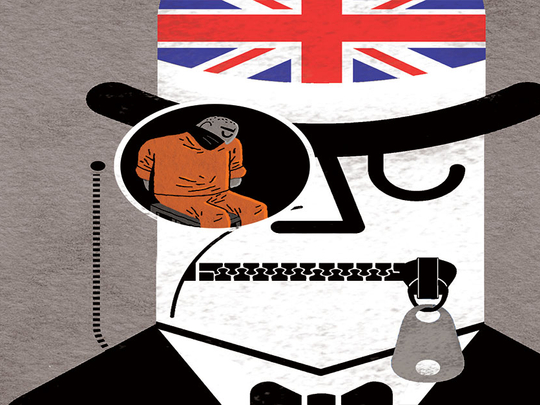
Shaker Aamer, the sole remaining British resident incarcerated and tortured in Guantanamo Bay, has repeatedly said he was brutally tortured in Afghanistan even before he was flown to the US military prison in Cuba. Moreover, he has said officers from British intelligence knew about his torture at the notorious US prison in Bagram, north of Kabul.
His lawyers say he has now been cleared for release by the US Department of Defence after 13 years detained without trial or charge. He says he is still being subjected to physical abuse and may not come out of Guantanamo Bay alive. He was seized in Afghanistan in 2001 after the 9/11 attacks, and was said to be close to Osama Bin Laden. He denies this, saying he went to Afghanistan to work for a charity, but was kidnapped by villagers and sold to the Americans.
Clive Stafford Smith of Reprieve, the human rights group that has been fighting for his release, has accused MI6 of giving US courts false information and of “stabbing Shaker in the back”. David Cameron and the Foreign Office insist they have repeatedly pressed Barack Obama to release him. Aamer has told Metropolitan police officers — investigating reports of British complicity in torture and the rendition of other detainees accused of being involved in terrorism — about his experiences. Two years ago he passed on a 24,000-word statement to the police, a draft of which was passed to the Mail on Sunday.
He describes how he was held in a freezing aircraft hangar, and claims a British intelligence officer was present during interrogations when his head was repeatedly beaten into a wall by the Americans. He also says he was interrogated by two British intelligence officers about what he did in London, where he had married a British woman and worked as a translator. Aamer also describes in his statement how he witnessed the torture in Afghanistan of a fellow prisoner, Ibn Al Shaikh Al Libi, who later claimed that Saddam Hussain had chemical and biological weapons and had supplied them to Al Qaida. Al Libi was rendered from Afghanistan in a coffin to Egypt where he made the claims after being locked in a small cage for more than 80 hours. Aamer says two British intelligence officers witnessed the abuse of Al Libi, whose “confession” was seized on by George Bush, and indirectly by Tony Blair, to help justify the invasion of Iraq in 2003 — even though MI6 knew Al Libi’s claims were not credible. MI6 officers privately insisted that any suggestion Saddam had links to Al Qaida was rubbish. What the Chilcot report says about this remains to be seen.
Aamer’s claims about British complicity in torture, and his impending release, come as the Crown Prosecution Service is considering a hefty Metropolitan police file on evidence of MI6 involvement in the rendition and torture of two prominent Libyan anti-Gaddafi dissidents and their families in 2004.
MI6’s role in the rendition of Abdul Hakim Belhaj, and Sami Al Saadi, and their families, and how they were abducted and rendered to Tripoli in a joint operation with the CIA, emerged in documents found in 2011 in the wake of Nato air strikes on the Libyan capital. Jack Straw, then foreign secretary responsible for MI6, has said: “No foreign secretary can know all the details of what its intelligence agencies are doing at any one time.” Government officials, insisting on anonymity, say MI6 was following “ministerially authorised government policy”. Tony Blair said he didn’t have “any recollection at all” of the Belhaj-Saadi renditions.
A civil suit bought by the Libyans will be heard by the supreme court next month. British government lawyers argue that no British court can rule on the case because agents of foreign powers, including the CIA, were involved in the operation. Aamer’s claims of British knowledge of his torture, and that of Al Libi, make a proper, open inquiry into Britain’s role, and into how much ministers knew about it, all the more urgent. Accumulating claims — and evidence — on such important matters should not be allowed to fester any longer. The kind of official denials given before are inadequate and unconvincing.
— Guardian News & Media Ltd











